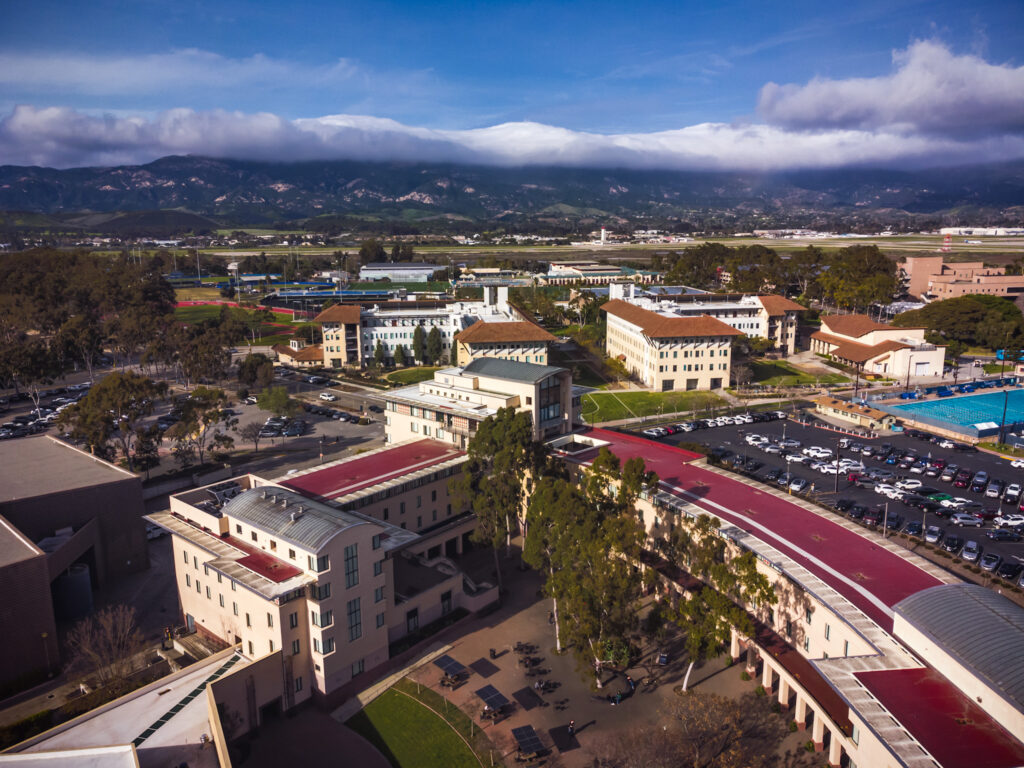According to various faculty members, the University of California thought of discontinuing salaries for faculty from the President’s Postdoctoral Fellowship Program, a competitive fellowship that encourages diverse Ph.D. holders to pursue careers in academia. On Tuesday night, UC President James B. Milliken announced the initiative will not be discontinued after consultation with campus administrators and the systemwide Academic Senate leadership.

The President’s Postdoctoral Fellowship Program was established in 1984 to offer postdoctoral research fellowships, professional development and faculty mentoring. Nexus file photo
The UC’s President’s Postdoctoral Fellowship Program (PPFP) was established in 1984 to offer postdoctoral research fellowships, professional development and faculty mentoring to “advance the research excellence and public service missions of the UC,” according to the initiative’s website.
In late October, UC Santa Barbara’s Office of the Executive Vice Chancellor and Provost allegedly informed department chairs that the UC Office of the President (UCOP) had discontinued the program. Fellows are selected through an open search process, determined through peer review by a UC-wide committee of faculty.
According to UCSB English professor and former PPFP advisory board member Julie Carlson, the program has an acceptance rate of approximately 4%. She said that the fellowship was initially understood as a pipeline for underrepresented faculty to be employed through the UC.
However, after California passed Proposition 209 in 1996, which prohibits state and local governments from considering race, sex or ethnicity in employment, the program’s focus shifted to “trying to bring the faculty demographics more in alignment with California demographics.”
“It’s been a fantastic program. Many other schools either are affiliated now with the [PPFP] or model themselves on it. We share resources and so on, but [the UC] started [PPFP],” Carlson said.
Whether or not the discontinuation of the PPFP came from pressure from the federal or state level, Carlson said, “no one really knows.” However, she said the “attack on higher education” and diversity, equity and inclusion (DEI) initiatives from the Trump administration may have foreshadowed the decision.
Despite this, Carlson believes the PPFP was “highly successful” and that there was “no indication this is a fringe program.”
“It was thriving. And it is also touted across the country, but also by UCOP, because it’s one of the very few successful programs in terms of helping interdisciplinary and creative work get understood by departments that can sometimes be more hidebound and into their own little ways of doing things,” Carlson said.
Since Milliken had yet to finalize the discontinuation of the program, UC faculty were “mobilizing pressure” on Milliken and other administrators to defend the program. Faculty crafted a toolkit demanding Milliken “restore and protect” the initiative.
In the toolkit, faculty called on administration to reaffirm the UC’s “core values of excellence, integrity, equity, diversity, and inclusion” according to Regents Policy 4400, which states the UC “must seek to achieve diversity, inclusion, and accessibility” among students and faculty.
The toolkit also asked the UC to “respect shared governance,” as they claimed preemptive changes to the PPFP by UC Provost and Executive Vice President of Academic Affairs Katherine Newman without senate consultation was a “clear violation of shared governance” and was a “direct challenge to the integrity of the UC system.”
In addition, the toolkit argued that the PPFP’s faculty hiring incentive and waivers of open recruitment strategically position UC campuses to “hire exceptional scholars” in areas of “emergent needs.”
“It is financially irresponsible to undermine an effective UC program that hires and retains top talent at the University of California,” the toolkit reads.
While Carlson acknowledges that the UC is amidst a “budget crisis,” she argues that the PPFP, which she said costs less than 1% of the UC budget, is in the University’s “best budgetary interest” due to the outcomes of the program.
“The faculty who were former postdocs do better,” Carlson said. “Their tenure rates are higher, and their engagement with the life of the University, or in their specific expertise in what we need now in order to teach better, but also run a university where it cares about its students and it thinks about its students as minds [and] bodies that need to be fostered.”
A version of this article appeared on p. 4 of the Nov. 20 print edition of the Daily Nexus.





















Eleni Assanis has it listed on her LinkedIn page that her title is Associate to the Chancellor. Rumor has it that she’s receiving a salary of $500,000 per year. Does anyone know if this is true? Did you know that the son of Chancellor Assanis, Dimitris Assanis, is an Associate Professor at Stony Brook University and it appears that he got the position through nepotism as his father was once the Provost at Stony Brook before he slithered to the University of Delaware before being installed at UCSB. So many questions and so few answers. Of course, the Chancellor’s new… Read more »
the only real thing we know is that you are a POS. You are a crazy banned from campus felon.
We our proud democrat’s hear in Santa Barbara and we must RECIST the racsisct who occupy’s 1600 Pittsburgh Ave. We must stand up and support are brown niegbors and the negro population. We will NOT be lectered by a bunch of FOxNews whatching republitard law makers who do’nt beleeve in globel warming. IT TAKES A VILLAGE. VOTE DEMOCRAT